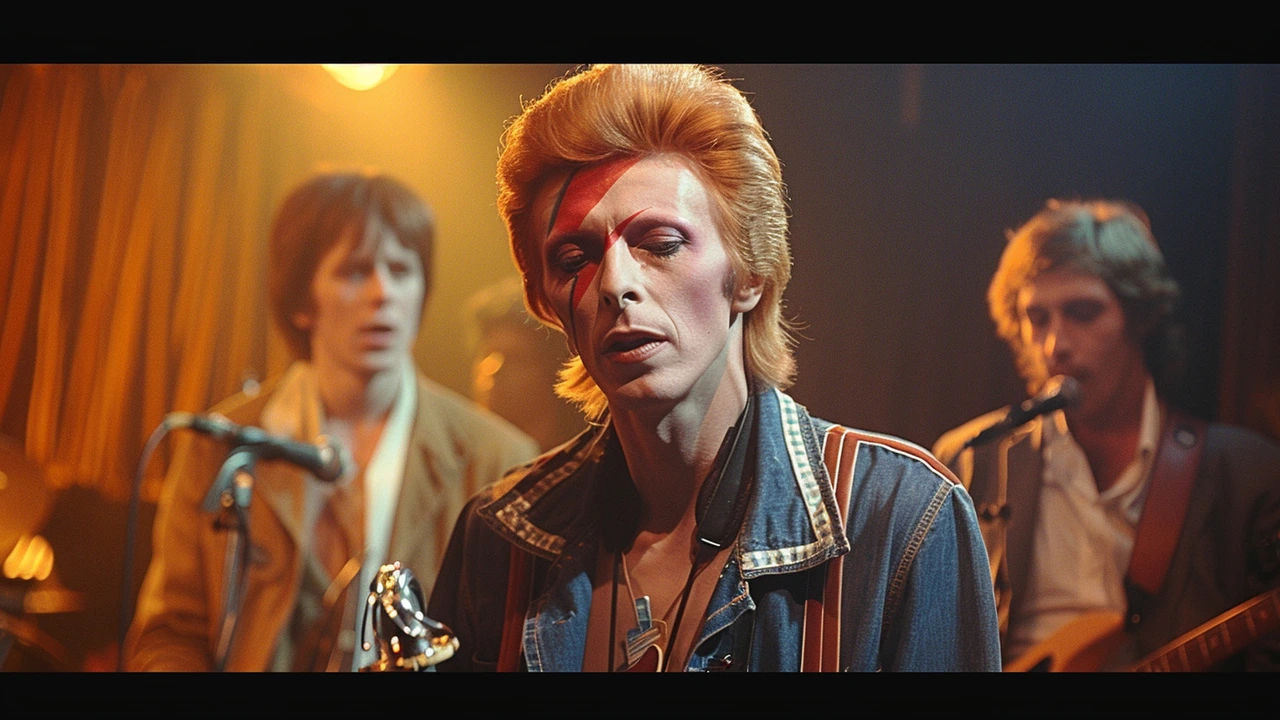
David Sanborn: The Saxophon Echoes through Bowie's 'Young Americans'
Music, an art form that transcends the simple act of sound production, often becomes a collaborative odyssey where talents fuse to create something beyond the sum of their parts. In this musical synergy, David Sanborn, an iconic saxophonist, played a pivotal role, especially noted in his work with David Bowie on the 'Young Americans' album. Sanborn, a figure primarily rooted in jazz, brought his robust saxophone prowess to the broader pop music scene, enriching it significantly.
Before his commendable partnership with Bowie, Sanborn had already carved a niche for himself. He was not just any musician; he was a known entity in the pop world through his association with the Paul Butterfield Blues Band and contributions to Stevie Wonder's 'Talking Book'. These projects only highlighted his versatile musical capabilities, setting the stage for his memorable collaboration with David Bowie during the Diamond Dogs Tour and marking his influence on the 'Young Americans' album.
The Birth of 'Young Americans'
The 'Young Americans' project was Bowie's daring dive into what he described as a 'white soul band thing' during a 1989 Q magazine interview. This musical exploration was heavily image-oriented, aiming for a soulful vibe suffused with pop and funk elements, a deviation that intrigued Sanborn. This album not only showcased Bowie's experimental essence but also underlined Sanborn's vital contributions, alongside other talented artists like Luther Vandross.
Sanborn's saxophone filled the sonic spaces usually reserved for the lead guitar, creating a unique soundscape across the album. His signature style was evident throughout the album, defining its auditory identity and helping Bowie achieve the envisioned 'white soul feel'. Notably, this endeavor was one of the main highlights of Sanborn's career, although he ruefully missed participating in the 'Fame' session, a missed opportunity mainly because he was touring with Gil Evans.
Continued Musical Journey
Beyond 'Young Americans', David Sanborn's career did not wane; it flourished. He continued to mesmerize audiences with his saxophone solos and collaborative performances across a vast spectrum of music genres. His interactions with legendary figures like the Rolling Stones, B.B. King, Paul Simon, Cat Stevens, and Bruce Springsteen not only enriched his career but also blessed the music world with unforgettable melodies and performances. Sanborn's ability to blend into various musical landscapes while leaving his mark was nothing short of remarkable.
From 1988 to 1990, Sanborn transcended traditional performance roles by hosting a unique music show produced by Lorne Michaels of Saturday Night Live fame. This show was not a typical music program; it provided a platform for live, eclectic performances from a wide array of artists including Marianne Faithfull, John Zorn, Aaron Neville, and NRBQ. This stint as a television host offered Sanborn another avenue to influence the music scene, bringing diverse musical styles to the forefront in a format accessible to a broader audience.
Legacy of a Musical Maestro
David Sanborn's legacy in the music industry is indelible. As a saxophonist and a musician, his contributions have transcended the usual confines of jazz and pop music, influencing generations of musicians and music aficionados. His work with Bowie on 'Young Americans' stands out as a significant beacon of his career, highlighting his role not just as a performer, but as a visionary who helped shape the sound of an era. Decades later, his reflections on these collaborations and performances not only enrich our understanding of his artistry but also underscore the profound impacts of these musical alliances.
As today's music scene continues to evolve, the echoes of Sanborn's saxophone across the tracks of 'Young Americans' and beyond continue to inspire and resonate, proving that true musical excellence is timeless. His journey from the smoky venues of jazz to the grand stages of pop and beyond remains a testament to his versatility and unwavering passion for music.